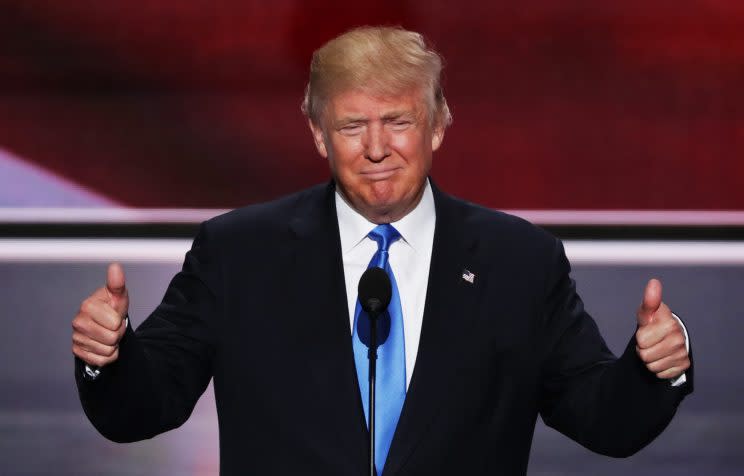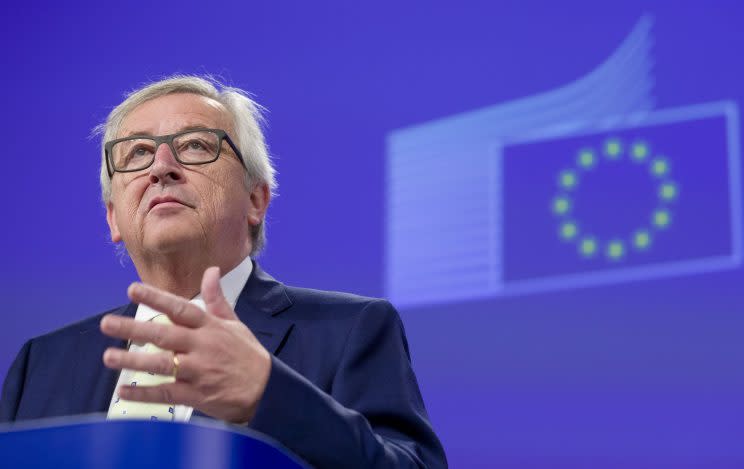2016 review: the big and bad themes in financial markets

‘Study the past, if you would divine the future’ – Confucius
To use a football expression it was a game of two halves for financial markets in 2016 with the key investment decision being at some point close to the Brexit referendum result to sell some bonds and buy some equities.
Of course this was against almost all prevailing investment logic that Brexit presaged an inevitable decline in the coherence of the Eurozone, a worsening of general trade relations and a recession in the UK. Welcome to the weird and wonderful world of the financial markets!
Of course all this may ultimately pass. But in the meantime anyone who did not learn the lesson of Brexit got hurt again later in the year when the fear of a Trump Presidency and, in the last week, a ‘no’ vote in the Italian constitutional referendum when the key to investment profits was to embrace risk and buy.
There were two main reasons why hope got rewarded more in the second half of the year than in the first six months of 2016. The first is that a bit of inflation is back aided by oil prices that have almost doubled from the lows of late January/early February.
[graphiq id=”7aAs0ZjkAzH” title=”OPEC Crude Oil Basket Reference Price – 1 Year” width=”600″ height=”521″ url=”https://w.graphiq.com/w/7aAs0ZjkAzH” link=”http://time-series.findthedata.com/l/3489/OPEC-Crude-Oil-Basket-Reference-Price” link_text=”FindTheData | Graphiq” ]
Second the world started to realise that ultra-low (and sometimes negative) yielding bonds just do not offer value. Whilst Brexit, Trump and European political shenanigans clearly can and will influence financial markets a little bit of inflation changes what you want to buy.
Bonds are in the middle now of a major shift from hero to investment perception zero whilst equities are in the middle of the opposite journey.
And a little bit of inflation usually leads to a little more even beyond the oil price firming further as OPEC at least transitorily manage to strike a deal. Note how President-elect Trump garnered support in his calls for infrastructure spend and more jobs or how the Bank of England had no qualms in restarting the quantitative easing/lower interest rates machine.

Inflation is edging up and that not only should make you as investors prefer equities but it should also change the equities you buy. Another key investment theme for 2016 was rotation. The first half of the year was all about defensive, worthy, higher yielding businesses like the big consumer staple names, utilities or telecoms.
And the second half of the year – as investors started to get their head around higher bond yields and rising prices – was all about having exposure to the grimy and more volatile (and previously heavily out of favour) financials, commodity stocks and industrials. My guess this whole sector thing gets much more anarchic in 2017 as the rally in the latter groups has just gone a bit too far, too fast.
Looking at the UK specifically the above trends have been accentuated by the fall of the Pound which has acted pretty much as the Brexit fear safety valve as we scrabble to some form of a European Union exit at some point later this decade – a debate that will boringly continue throughout 2017.
A weak euro has helped keep European exports at firm levels and ever greater stimulus policies by the European Central Bank has kept the game going for the region. Watch those French and German elections in 2017 but the fear factor is already very high. Europe certainly has the scope to (positively) surprise in 2017 and that includes scope for a cobbled together Brexit deal that does not hurt all.

China and the US kept growing in 2016 to the great benefit of the world economy and financial markets – and both have the scope to continue doing this in 2017.
However – and this is the biggest however of 2017 in my view – things are brewing in the American-Chinese relationship across Twitter, trade, US bond purchases and currency levels. If you want your source of global financial market volatility in 2017 this is where you should focus.
In short, 2016 was a year for making one big decision in the middle of the year to change your portfolio exposures and stylistic biases. In 2017 it is going to be a bit more mixed up. That does not mean there will not be opportunities but the number of investment decisions to be made will be higher. And – in good advice too ahead of the potentially sedentary Christmas period replete with overeating – therefore the key for ticking the box in your investment portfolios in 2017 is getting active.
Season’s Greetings and good luck in 2017.
Chris Bailey has 20 years of investment industry experience at long-only and long-short institutions as a global multi-asset fund manager, strategist/macro thinker and, in the earlier part of his career, as a securities and fund analyst.
In 2013 he founded Financial Orbit focusing on daily macroeconomic comment and securities analysis.
Disclaimer: The content on this page does not constitute financial advice and is provided for general information purposes only. Nothing on this page should be regarded as an offer to conduct investment business or to buy/sell any investment

 Yahoo News
Yahoo News 

